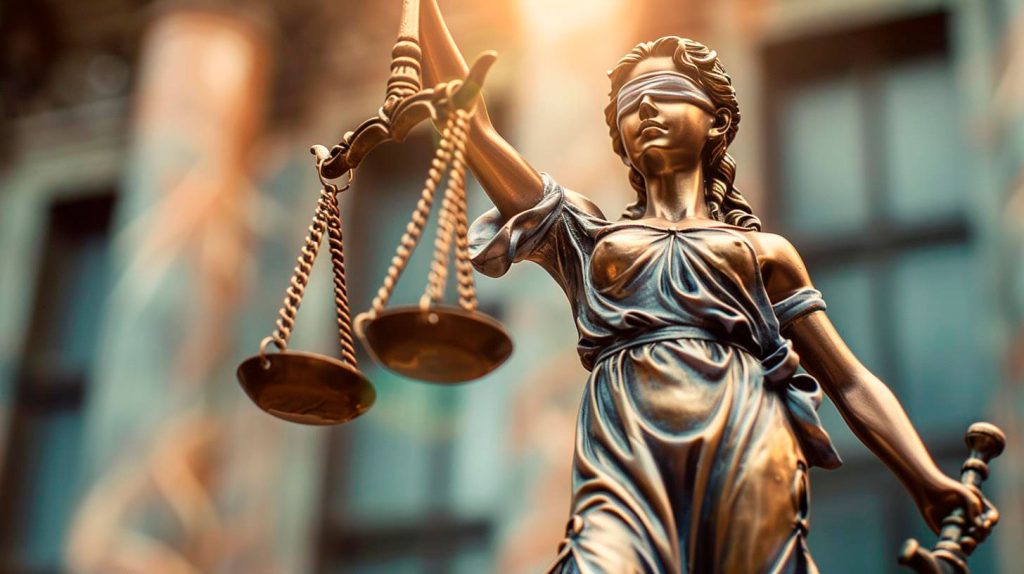
Seeking Legal Action for Unauthorized Credit Inquiries
Unauthorized credit inquiries can have a negative impact on your credit score and financial well-being.
Unauthorized credit inquiries are a violation of the Fair Credit Reporting Act (FCRA), which is a federal law that regulates how consumer credit information is collected and used. According to the FCRA, only authorized entities, such as lenders or landlords, are allowed to access your credit report for legitimate purposes. If you believe that someone has made an unauthorized inquiry into your credit report, you have the right to seek legal action against them.
What Are Unauthorized Credit Inquiries?
Unauthorized credit inquiries occur when a company or individual accesses your credit report without your consent. This can happen when a lender pulls your credit report without your permission, or when a potential employer checks your credit history without notifying you. Unauthorized credit inquiries can be damaging to your credit score and can potentially harm your chances of qualifying for credit or employment in the future.
It’s important to monitor your credit report regularly to ensure that no unauthorized inquiries have been made. By checking your credit report regularly, you can detect any suspicious activity and take action to protect your credit information.
How Can You Take Legal Action?
If you believe that someone has made an unauthorized inquiry into your credit report, you have the right to take legal action against them. You can start by filing a complaint with the Consumer Financial Protection Bureau (CFPB) or the Federal Trade Commission (FTC). These agencies are responsible for enforcing the FCRA and can investigate your complaint.
You can also consider hiring a consumer rights attorney to help you take legal action against the perpetrator. An attorney can help you gather evidence, file a lawsuit, and seek compensation for any damages that you have suffered as a result of the unauthorized inquiry.
Benefits of Seeking Legal Action
- Protect your credit information
- Hold the perpetrator accountable
- Seek compensation for damages
- Prevent future unauthorized inquiries
Industry Statistics
According to a report by the CFPB, unauthorized credit inquiries are one of the top consumer complaints received by the agency. In 2020, the CFPB received over 50,000 complaints related to unauthorized credit inquiries, highlighting the prevalence of this issue.
Additionally, a survey conducted by the FTC found that 1 in 5 consumers have experienced unauthorized access to their credit report at some point in their lives. This statistic underscores the importance of taking proactive measures to protect your credit information from unauthorized access.
Unauthorized credit inquiries can have serious consequences for your credit score and financial well-being. If you believe that someone has made an unauthorized inquiry into your credit report, it’s important to take action to protect your rights. By seeking legal action against the perpetrator, you can hold them accountable and seek compensation for any damages that you have suffered. Remember to monitor your credit report regularly and take steps to safeguard your credit information from unauthorized access. Your credit information is valuable, and it’s worth protecting.
Steps to Take if Your Credit Report is Pulled Without Authorization
Understanding the Problem
When a company or individual pulls your credit report without your permission, it can be a violation of the Fair Credit Reporting Act (FCRA). This federal law protects your rights as a consumer and regulates how your credit information is handled. Unauthorized access to your credit report can lead to identity theft, fraud, or other financial harm.
It is essential to check your credit report regularly to monitor for any unauthorized inquiries. You are entitled to one free credit report from each of the three major credit bureaus (Equifax, Experian, and TransUnion) every year. If you see inquiries from companies you do not recognize, it is crucial to take action immediately.
Taking Action
If you discover that your credit report has been pulled without authorization, the first step is to contact the company that accessed your report. Ask them why they did so and request a copy of the authorization they claim to have. If they cannot provide this documentation, you should inform them that they are in violation of the FCRA.
Next, you should contact the credit bureaus and request that they remove the unauthorized inquiry from your report. You can do this by filing a dispute online or by mail. The credit bureaus are required to investigate your claim and remove any inaccurate information within 30 days.
If the unauthorized inquiry has caused you financial harm, such as being denied credit or employment opportunities, you may have grounds for a lawsuit. In this case, it is advisable to seek legal counsel from a lawyer who specializes in consumer protection and credit reporting laws.
Benefits of Legal Assistance
Having a lawyer on your side can be invaluable when dealing with unauthorized credit inquiries. They can help you navigate the complex laws surrounding credit reporting and consumer rights, and ensure that your rights are protected. A lawyer can also help you understand your legal options and take the necessary steps to seek compensation for any damages you have suffered.
Additionally, a lawyer can help you gather evidence to support your case, negotiate with creditors or credit bureaus on your behalf, and represent you in court if necessary. With their expertise and experience, a lawyer can increase your chances of a favorable outcome in your case.
Unauthorized credit inquiries can have serious consequences for consumers, including identity theft, fraud, and financial harm. If you discover that your credit report has been pulled without your authorization, it is essential to take immediate action to protect your rights. By following the steps outlined in this article and seeking legal assistance if necessary, you can take control of the situation and ensure that your credit information is secure.
Remember, you have the right to privacy and control over who has access to your credit information. Stay vigilant and proactive in monitoring your credit report to prevent unauthorized inquiries and protect yourself from potential harm.
How to File a Dispute with Credit Bureaus
The Importance of a Clean Credit Report
Your credit report is a reflection of your financial history and plays a crucial role in your financial future. Lenders, employers, and even landlords use your credit report to assess your creditworthiness and make decisions that could impact your life. Therefore, ensuring that your credit report is accurate and up-to-date is essential.
Studies have shown that a staggering 25% of credit reports contain errors that could negatively impact an individual’s credit score. These errors could result in higher interest rates, denial of credit applications, or even difficulty securing a job. By regularly monitoring your credit report and taking steps to correct any inaccuracies, you can protect yourself from these negative consequences.
Identifying Errors on Your Credit Report
The first step in filing a dispute with the credit bureaus is to carefully review your credit report and identify any errors. Common errors include incorrect personal information, accounts that do not belong to you, late payments that were never made, and accounts that have been incorrectly marked as delinquent.
Once you have identified these errors, it is essential to gather any documentation that supports your claim. This could include bank statements, payment records, or correspondence with the creditor in question. The more evidence you can provide to support your dispute, the more likely it is to be resolved in your favor.
Filing a Dispute with Credit Bureaus
Once you have gathered the necessary documentation, you can begin the process of filing a dispute with the credit bureaus. You can file a dispute online, by mail, or over the phone, depending on the credit bureau’s preferred methods. When filing a dispute, be sure to clearly identify the error you are disputing and provide a detailed explanation of why you believe it is inaccurate.
The credit bureaus are required by law to investigate any dispute within 30 days of receiving it. During this time, they will contact the creditor in question and ask them to verify the accuracy of the information in question. If the creditor is unable to verify the information, it must be removed from your credit report.
The Benefits of Filing a Dispute
By filing a dispute with the credit bureaus, you are taking control of your financial future and ensuring that your credit report accurately reflects your financial history. In addition to correcting errors that could harm your credit score, filing a dispute can also help protect you from identity theft and fraud.
According to the Federal Trade Commission, consumers who file disputes with the credit bureaus have a 70% success rate in having errors corrected on their credit reports. This means that by taking action and filing a dispute, you are likely to see positive results and improve your creditworthiness.
Final Thoughts
Your credit report is a valuable asset that can impact many aspects of your life. By regularly monitoring your credit report and taking steps to correct any errors, you can protect yourself from the negative consequences of inaccuracies. Filing a dispute with the credit bureaus is a straightforward process that can have a significant impact on your financial well-being.
Remember, accuracy is key when it comes to your credit report. By taking the necessary steps to correct any errors, you are taking control of your financial future and ensuring that your credit report accurately reflects your financial history.













I’m worried about the potential impact on my credit score. How can I prevent further unauthorized pulls?
I heard that there are strict penalties for unauthorized credit report pulls. Is that true?
Can we file a complaint with the credit reporting agency for this violation?
I think we should definitely seek legal advice on this matter. It’s a violation of our rights.
This is a serious issue. We need to take action to protect our credit and privacy.
Make sure to dispute any inaccuracies on your credit report caused by unauthorized pulls.
It’s important to understand your rights under the Fair Credit Reporting Act and take necessary steps to protect yourself.
Unauthorized credit report pulls can have lasting consequences on your credit score and financial well-being. Take action now.
It’s important to act quickly and assert your legal rights in this situation. Don’t let anyone get away with violating your privacy.
I’m so angry that my personal information was accessed without consent. What are my options?
Is there a specific law that protects us from unauthorized credit report pulls?
This is a serious matter and should not be taken lightly. Seek legal counsel to understand your options.
OMG I can’t believe my credit report was pulled without my permission! What can I do about this??
Don’t hesitate to take legal action if your rights have been violated. Your credit and financial future are at stake.
Ugh, this happened to me too! It’s so frustrating. Can we sue them for this?
You should contact a lawyer who specializes in consumer rights to discuss your options for legal action.
Remember to check your credit report regularly to monitor for any unauthorized activity.
Keep detailed records of the unauthorized credit report pull and any correspondence with the credit reporting agency.